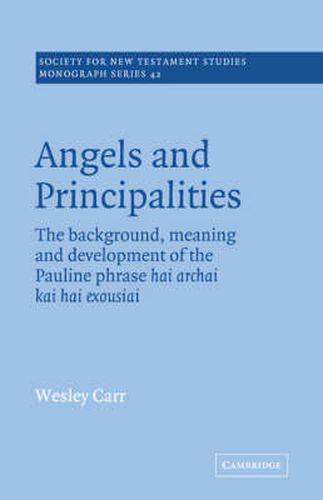Readings Newsletter
Become a Readings Member to make your shopping experience even easier.
Sign in or sign up for free!
You’re not far away from qualifying for FREE standard shipping within Australia
You’ve qualified for FREE standard shipping within Australia
The cart is loading…






St Paul and his contemporaries - so runs a commonly accepted scholarly opinion - inhabited a world believed to be dominated by hostile superhuman powers, of whom Jews and Gentiles alike liked in fear. Dr Carr challenges this widespread assumption by means of a detailed examination of various kinds of evidence. First there is the New Testament itself. The general Mediterranean cultural background of the first century is also important, and the author looks at evidence from the early Church Fathers and gnostic material. He concludes that the notion of mighty forces of evil ranged against man was not part of the earliest Christian understanding of the world and the gospel. His argument has special significance in the light of the belief that a present-day interpretation may be given to the idea of hostile powers and their conquest by Christ, thus supporting political, social and ethical thinking within the Christian Church.
$9.00 standard shipping within Australia
FREE standard shipping within Australia for orders over $100.00
Express & International shipping calculated at checkout
St Paul and his contemporaries - so runs a commonly accepted scholarly opinion - inhabited a world believed to be dominated by hostile superhuman powers, of whom Jews and Gentiles alike liked in fear. Dr Carr challenges this widespread assumption by means of a detailed examination of various kinds of evidence. First there is the New Testament itself. The general Mediterranean cultural background of the first century is also important, and the author looks at evidence from the early Church Fathers and gnostic material. He concludes that the notion of mighty forces of evil ranged against man was not part of the earliest Christian understanding of the world and the gospel. His argument has special significance in the light of the belief that a present-day interpretation may be given to the idea of hostile powers and their conquest by Christ, thus supporting political, social and ethical thinking within the Christian Church.